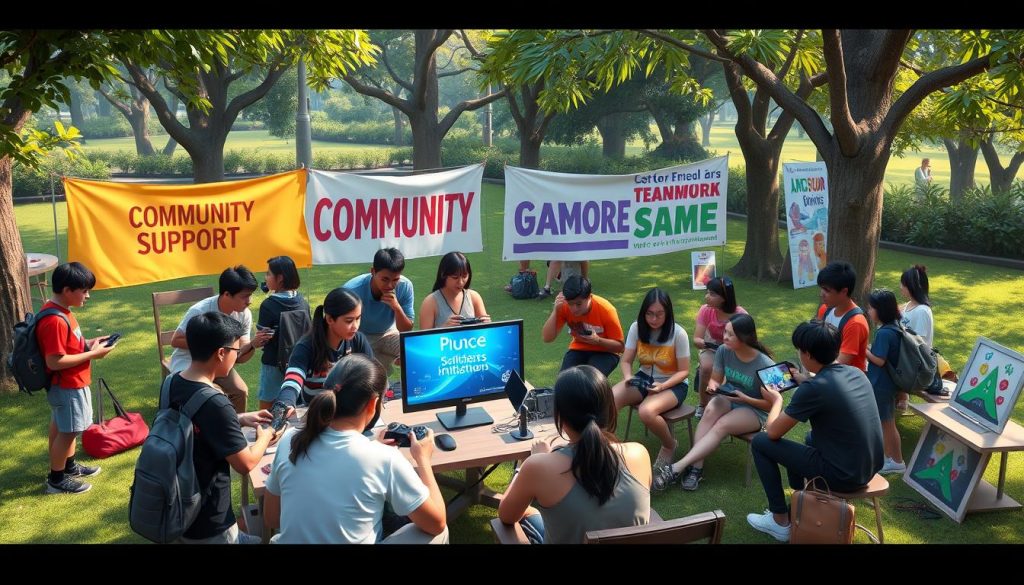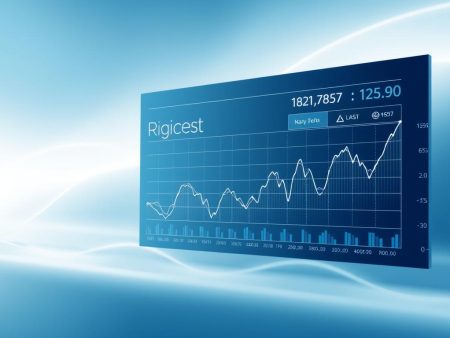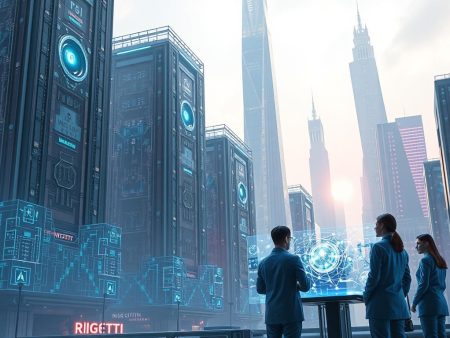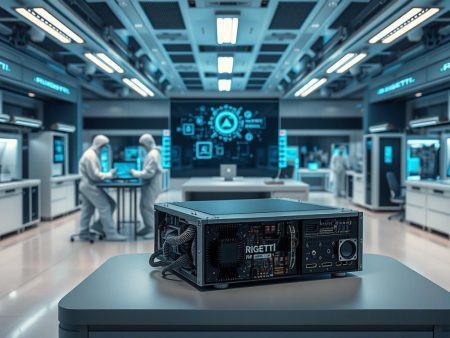Did you know Epic Games, the company behind Psyonix, recently let go of 900 workers to fix their finances1? They plan to stop player-to-player trading in Rocket League on December 52. Many players are confused and upset by this news.
Trading is a big deal in Rocket League. Almost 90% of what happens on apps like RL Garage is trading2. Taking away trading worries lots of players and those who make content for the game. They see it as a crucial part of enjoying Rocket League.
Epic Games announced this change suddenly. It fits their rule that in-game items can’t be traded or sold1. They want players to buy items in the game, which makes them money1. This could change how the game’s economy works and how players get and trade items. There are many questions about what comes next.
Key Takeaways
- Epic Games is removing player-to-player trading from Rocket League on December 5.
- This decision aligns with Epic’s policy on non-tradable and non-transferable in-game items.
- RL Garage, whose user activity heavily relies on trading, will be significantly impacted.
- Players and content creators are expressing backlash over the sudden announcement.
- The move aims to steer players towards in-game purchases, benefiting Epic Games financially.
In this article, we’re going to look closer at why this is happening, how people are reacting, and what it might mean for Rocket League in the future. Stay with us to see all the effects of this big change.
The Announcement: Rocket League Trading Removal
Psyonix announced they will stop player-to-player trading in Rocket League starting December 5, 2023, at 4 pm PST3. This move is to match Epic Games’ rules on item trading4. Epic Games has had these rules since buying Psyonix in 20193. The goal is to follow Epic’s tight rules and make way for new joint promotions5.
Details of the Announcement
Stopping player-to-player trading is a big deal for Rocket League’s market. Key things affected include:
- No more trading or giving away in-game items4
- Third-party trading sites like Rocket League Garage will shut down3
- Achievements such as ‘Swap Meet’ won’t be possible anymore4
Also, players will have to use the ‘trade-in’ feature for items they don’t want or have extra of5. This change is a big move from how things were done before.
Immediate Community Reaction
The update has not been welcomed by many. A lot of players are upset, shown by a Change.org petition3. Content creators who focus on trading are facing challenges, as their work often depends on trades4. About 60% of all players, the traders, are very worried. They think this could lessen player excitement and viewers for esports events5. Fans fear this might lead to fewer people playing and a weaker community feel.
Epic Games’ Policies: The Guiding Principle
In 2019, when Epic Games bought Psyonix, things changed for Rocket League. They started new rules for trading in-game items. This big change moved from an open trading system to a more controlled one. This matches Epic Games’ in-game item policies.
Because of this, players now have to follow strict rules for trading within the game.
Overview of Epic Games’ Approach to In-Game Items
Epic Games has strict rules for in-game items. They want all trades to be safe and fair. So, items can’t be traded, sold, or given away outside the game’s market.
On December 5, 2023, Rocket League stopped most trading options6. The game set trading limits based on a player’s XP level:
- Levels 1 – 30: No trading allowed.
- Levels 30 – 99: Up to 3 trades per day, 2000 Credits max.
- Levels 100 – 249: Up to 10 trades per day, 10,000 Credits max.
- Level 250 and above: No limit on trades, but up to 100,000 Credits.
To start trading, players need to buy at least 500 Credits, or spend about $5.006. This change shows Epic Games’ strong policy against unapproved trading. They aim to keep the trading practices within their economic system6.
Following Epic Games’ in-game item policies also means following strict rules. Breaking these rules, like using multiple accounts or scamming, leads to a ban7. This policy aims to create a gaming environment without harassment or abuse7.
Reasons Behind the Decision
The choice to remove player trading in Rocket League was driven by a mix of strategy and finance. It lines up with Epic Games’ policies and aims to keep in-game items exclusive. This is part of Epic Games’ larger plan.
Aligning with Epic’s Overall Strategy
Epic Games’ rules limit in-game item trading to control the market. This aligns with their strategy since buying Psyonix in May 2019. They wanted Rocket League’s trading system to fit this plan. The removal of player trading is to stop unauthorized sales and make sure all players have the same experience. It shows Epic Games’ commitment to a unified platform approach.
Financial Motivations
Money also influenced the removal of trading. After Epic Games cut about 900 jobs to adjust its budget, it looked for new income paths8. Focusing on in-game item shops lets Epic control and make money from item sales better. This move supports Epic Games’ bigger strategy and shifts towards earning more within their game world.
Impact on Rocket League Economy
The end of trading in Rocket League will change the game’s economy a lot. On December 5, 2023, players won’t be able to trade items anymore. This major change affects how things work in the game9. Epic Games wants to change how players get cosmetic items and use the item shop9. So, players will have to buy items from the shop. This could make players scared they’ll miss out on cool items10.
Changes in In-Game Market Dynamics
Before, Rocket League’s market was active with player trades. But, banning trades changes the game’s economy. Rare items will be harder to find, affecting what items you can get10. Not being able to trade has made many players unhappy. Some even say the game is “dead” without trading9.
Players are worried about not getting rare items anymore. They want the developers to solve these new problems.
Effect on Item Shop Purchases
Without trading, buying from the item shop is the only way to get new items. Players think item shop prices might go up. This makes it hard to get what they want without paying more10. Many players are upset and suggest not buying from the item shop or Rocket Pass10. Psyonix and Epic Games need to be careful to keep players happy with these new changes.
Community Reactions and Backlash
The Rocket League community has been very critical about the end of player-to-player trading. The official Rocket League update on X got nearly 7 million views in a day. This shows many players are worried11. A lot of them say that taking away trading lessens how much they enjoy playing11.
Well-known pro players, rise and AcroniK, also shared their worries. They think this move could hurt the community and the game’s future12.
Immediate Reactions from Players
Right after Psyonix announced they’re ending player-to-player trading on December 5, players reacted strongly12. They said the decision seems out of touch, especially with casual gamers12. This quick backlash shows that trading is a big part of the game’s world and how players connect.
Petitions and Social Media Movements
The Rocket League community’s response has grown beyond just speaking out. Players are making petitions and starting social media campaigns, using #FreeRocketLeague to push back. Their united stand on X shows how much they all want to keep trading11. These actions show just how important trading is for the players’ Rocket League experience.
Impact on Content Creators and YouTubers
The end of player-to-player trades in Rocket League impacts content creators and YouTubers greatly. These creators used to thrive by showing off new cosmetic items, trades, and rare finds. They provided free marketing for Psyonix, keeping the game exciting for players old and new.
Loss of Free Marketing for Psyonix
Rocket League creators who focused on trading will face big challenges. The end of player trading starts on December 513,influenced by Epic Games. This will disrupt their video content and reduce spontaneity. Both Psyonix and the creators lose a key way to market the game.
The game’s 91.5 million player base shows the impact could be huge10. Player reactions vary from boycotts to petitions with nearly 15,000 signatures1013. Without trades, showcasing new and rare items will diminish significantly13.
Effect on Esports and Tournament Organizers
The removal of item trading in Rocket League will hugely affect esports and tournament organizers. This change makes it tough to give out in-game items as rewards, which were big draws for Rocket League contests.
Challenges for Tournament Prizes
Tournament leaders have always depended on trading items to reward players, adding excitement to the games. With no trading, they need to find new ways to give out these rewards. Since 2015, Rocket League grew in esports with help from ESL and Major League Gaming14. Not trading could make these events less attractive because exclusive items won’t be rewarded.
This change could also change how prize pools are managed. The esports world has seen big mergers, like the $1.5 billion union of ESL Gaming and Faceit15. Rocket League event planners may need new strategies to keep players interested. With the trend of companies gaining more control in esports, these changes could lead to new reward systems and event management styles.
The effect on Rocket League esports isn’t just on the organizers. Players and fans might find events less exciting without item trades for prizes. To deal with these changes, organizers must think of innovative ways to give rewards. They could use new methods and improve events to keep their audience interested and support Rocket League’s esports scene.
Why Is Rocket League Removing Trading
Players are curious why is Rocket League removing trading. The main reason is to match Epic Games’ rules on items you can’t trade. Since Epic Games bought Psyonix in 2019, they’ve wanted to keep game economies similar. So, trading is being dropped to align with this goal.
Also, Epic Games wants to push players to buy more from the store. Removing trading could lead to more store purchases. This should help the game make more money and support its development. It could also let items work across different games in the Epic Games family.
Another reason for trading’s end is focusing on what players worry about. As the game grows, like starting Season 13 in early December 2023, changes are needed. Rocket League’s wide availability means these changes are important for its future economic system16.
The drop in trading also affects third-party platforms. About 90% of what players do on the RL Garage site is trade. This loss hurts RL Garage’s income, which comes from ads and memberships. With 6 million users, RL Garage must find new ways to keep people interested2. There’s also a strong player reaction on social sites, showing through the #FreeRocketLeague movement.
Alternative Solutions for Players
Since player-to-player trading in Rocket League is ending on December 5, 2023, at 4 PM PST, players are searching for other ways to trade173.
Use of the Trade-In System
The Trade-In system is a handy tool for organizing your items. It lets players swap duplicates or items they don’t want for new, rarer ones. You can trade Core Items, Tournament Items, and Blueprints173.
This way, you might get something better, though it’s all up to chance.
Exploring In-Game Item Shops
Players can also check out the in-game item shop. This allows for buying new items directly, though it might cost more173.
With the end of player-to-player trading, more people may turn to the item shop. This will affect sites like Rocket League Garage3. While this reduces player control over their items, it keeps the game’s economy under Epic Games’ control3
Potential Benefits of the Change
Even though some people might not agree, taking out trading can bring good things. A big plus is better Rocket League cross-game ownership chances. By looking into cross-game ownership, Psyonix can make gaming and their brand better across different Epic Games.
Cross-Game Ownership Opportunities
Stopping trading could lead to cool new things like putting Rocket League cars in other Epic Games18. This means you could see your favorite in-game stuff in other places. It makes owning things in Rocket League more fun because they show up in different games19. Also, this idea fits with the new talks about owning digital stuff and NFTs, giving gamers real ownership without the creators stepping in18.
This could make things more connected and free in games. It’s like an upgrade from the trading system we know19.
Third-Party Trading Sites and Their Fate
Rocket League is saying goodbye to its player-to-player trading, impacting many third-party trading sites like RL Garage and RL Tracker Network. These sites have been a big part of the Rocket League world, helping players trade items and find what they need. As the trading feature goes away on December 5 at 4 p.m. PST, these sites might see fewer visitors and make less money, possibly leading to their closure2021.
Shutting down these sites could really shake up the Rocket League community. Since Crates appeared in September 2016, these platforms have kept the trading scene alive and kicking. Even when the game swapped Crates for Blueprints in 2019, these websites quickly adapted to keep supporting players2021.
Closure of Popular Platforms
As these trading sites prepare to close, the whole Rocket League community will feel the effects. Players who’ve used these sites for trades will have to find new ways to swap items. Sites like RL Exchange are already thinking about what’s next, facing future hurdles. This might mean losing key tools and info used for deciding item values and tracking trades20.
Moreover, the end of trading fits with Epic Games’ rules about in-game items and fighting scams. Any Rocket League sites that keep offering trades after December 5 will break Psyonix’s new rules21. They’re aiming for a safer, more secure way to handle in-game buys and sells.
Understanding the Broader Industry Context
Rocket League recently stopped allowing players to trade in-game items. It’s useful to look at how other games manage in-game item trades. Each game developer strikes a balance between giving players freedom and reaching their financial goals.
For example, Rocket League, under Epic Games, has stopped trading. This is similar to Fortnite’s policy, which bans trading to keep the economy safe and controlled22. However, games like Counter-Strike: Global Offensive have an open trading system. They let players trade “skins,” or virtual assets with each other.
Comparison with Other Games’ Policies
The gaming world takes different approaches to in-game item trading. Team Fortress 2 players can trade freely, making a lively market. But, Overwatch, by Blizzard, does not allow trading at all. Items can only be gotten through loot boxes or buying them, much like Epic Games’ approach22.
Skin gambling shows the complex nature of in-game item trading policies23. This happens in games that allow trading, turning virtual items into things with real-world value. This often breaks the game’s rules, or EULA23. New Jersey has even started to regulate esports betting, showing the challenges these practices can bring23.
| Game | Trading Policy | Key Features |
|---|---|---|
| Rocket League | No Trading | Strict in-game item control aligned with Epic Games’ strategy. |
| Counter-Strike: Global Offensive | Open Trading | Supports skin gambling and item transactions. |
| Team Fortress 2 | Free Trading | Dynamic marketplace where players trade items freely. |
| Overwatch | No Trading | Items acquired through loot boxes or purchases. |
Future Developments and Predictions
Rocket League’s trading policy might change soon because of what players say. The game’s journey includes many updates that shape how we play. Starting December 5, 2023, players won’t be able to trade with each other, changing the game’s dynamic at 4 pm PST2.
Fans’ responses could make Psyonix and Epic Games think over their plans. Critical opinions on social media show how the community feels. This reaction might lead to changes to keep the game enjoyable for everyone24.
The gap between RL Garage’s 6 million users and the new rule is huge2.
Possible Revisions to the Policy
The company might add new features or ways to trade. RL Garage was huge for trading, showing a big need for something similar2.
What players say will influence what comes next. They want the game to keep growing, especially in trading. Watching for updates and understanding future changes is important for players2.
Tips for Adjusting to the New System
Getting used to no trading in Rocket League might seem hard. But, with the right moves, you can still get great items. Learn the newest updates and change your game plan to suit the new system well.
How to Optimize Item Acquisitions
Improving your Rocket League item collection starts with the Trade-In system. Collect lower-tier items and trade them up for better rewards. This way, your inventory keeps getting better. Watch the item shop closely for special items and time-limited deals that can boost your collection.
Don’t overlook in-game events. They often have unique and rare items you can’t get elsewhere. Taking part in these events and promotions ensures you grab these exclusive items.
Staying updated on patches and community talks is crucial. For example, there’s been a lot of chat about issues like controllers disconnecting, smurfing, and bans in casual matches25. Knowing about these problems and their fixes can lead to smoother play while you adjust to the no trading setup.
Game reviews have been mixed lately, with most of them being 1-star (85%) and only a small number 3-5 stars (7%)26. This shows how vital it is to listen to community feedback to adapt your plans and expectations.
Knowing the competitive scene in Rocket League is also important. There are various competitive playlists, from Solo Duel to Rumble, for different skill levels. Players need to be at least level 10 and play 10 placement matches27 to dive into the competitive play.
| Strategy | Benefit |
|---|---|
| Utilize Trade-In System | Gain higher-tier items |
| Monitor Item Shop | Access exclusive items |
| Participate in In-Game Events | Collect unique, rare items |
| Stay Updated on Technical Issues | Ensure smoother gameplay |
| Understand Competitive Playlists | Better gameplay strategy |
Community-led Initiatives and Support
After Rocket League stopped trading, the community rose to help third-party content creators. By enjoying their work on YouTube and Twitch, you help them keep going despite big changes.
Supporting Third-Party Content Creators
Support your top creators by watching, subscribing, and sharing their work. Using ad-supported platforms or getting a premium subscription helps them financially.
| Review Platform | Number of Reviews | Average Rating | Star Rating Distribution |
|---|---|---|---|
| Epic Games | 3,311 | 1.4 stars |
|
| Minecraft | 547 | 1.4 stars |
|
| RL Exchange | 11,849 | 1.4 stars |
|
Helping creators is key to keeping the community healthy. With differing promotion approaches between Rocket League and Rocket Racing, the community’s support is critical for creators28.
Conclusion
The removal of trading from Rocket League is a big shift for its community and economy. It fits into Epic Games’ wider policy for their games. To trade before, players needed a verified account with Epic Games. They also had to be at least level 30, buy 500 in-game credits, and play online for 50 minutes29.
Getting rid of trading shook up many things in the game. Sites like OPMarket saw lots of traffic and questions about trading30. RL.Insider and Rocket League Garage, big names in the community, had to deal with this big change30.
Now, Rocket League’s community is navigating these changes. There’s room for new kinds of partnerships and creative ideas. The next few months are key to see how everyone adapts. The goal is to keep Rocket League as lively and welcoming as it’s always been.



